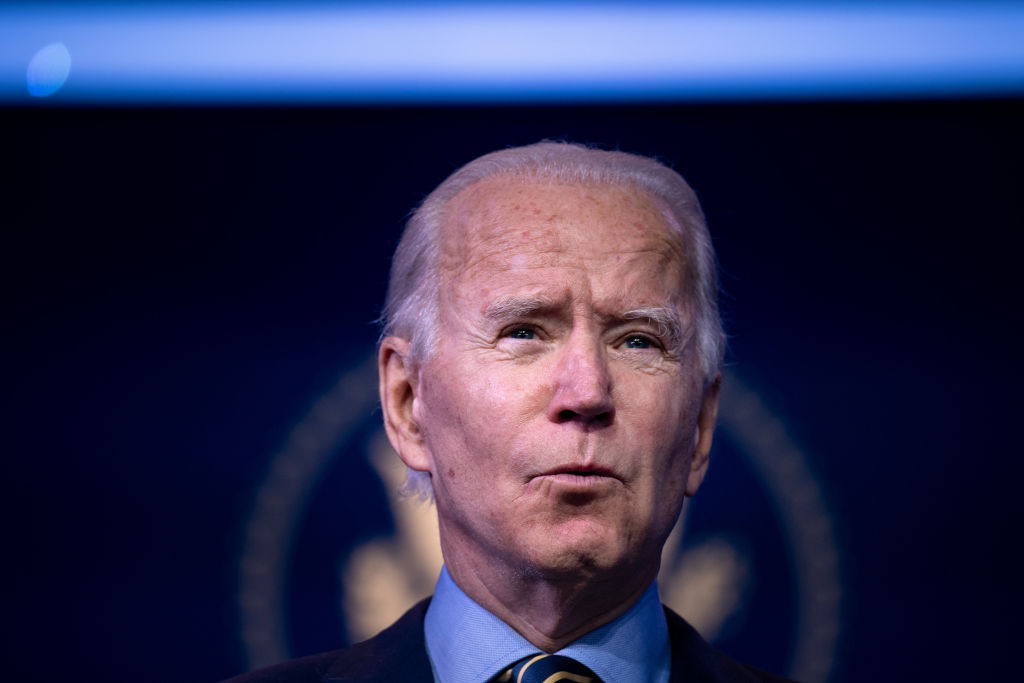
We’ve already dived into the U.S. domestic political divisions Joe Biden faces, but as his administration begins getting key officials confirmed this week, let’s survey some of the other big challenges he’ll have to tackle: the geopolitics, the economics, and the technology.
In geopolitics, Biden will spend time and political capital rebuilding the Transatlantic relationship, something other recent U.S. presidents never had to worry about. He’ll have to re-establish U.S. credibility in the region by reassuring South Korea, Japan and other Asian allies—who are rightly fearful that Trumpism might return—that the U.S. remains committed to help them manage challenges created by China’s rise. That means a tighter alignment of free-market democracies and a coordinated multilateral approach.
Biden will also need to persuade Russia that bad behavior, whether cyber operations targeted abroad or domestic political repression, will have consequences. On Iran, the goal is two-fold. First, avoid a near-term crisis while the Biden team finds a way to restart negotiations for an updated nuclear deal that will boost Iran’s economy and global security. Second, demonstrate that the U.S. will honor and enforce past commitments. For North Korea, Venezuela and Turkey, the Biden team needs at least to maintain the status quo in its turbulent relations with all three. None of these moves—even if successful—changes the fact that the global order is slowly slipping away from the U.S. The previous four years has demonstrated both the deep dysfunction of U.S. politics and the potential for sharp policy reversals over time. But if Biden can slow the erosion of U.S. influence, much can still be achieved.
Next, economics. The ongoing pandemic and its economic fallout confronts the new president with urgent domestic priorities. The U.S. vaccine rollout continues to move slowly (one and a half months into the vaccination drive, just 4.3 million people have been vaccinated with two-dose shots so far), and much more stimulus will be needed to keep Americans afloat until enough of the U.S. population has immunity to reach a stable new normal. The long-term question that Biden and team need to answer is how to respond to a world in which the global free market is giving way to a hybrid economy in which certain countries only trade particular goods and services with those politically aligned with them.
Why is this happening? China and the threat it poses in both developing and setting standards for emerging technologies are moving the world where toward a system of two competing tech ecosystems, a Chinese one and a Western one, and China has already begun exporting its tech to Beijing-friendly governments who depend on access to the Chinese market. While global trade can offer benefits to all who engage in it, tech competition between the U.S. and China—where control and access to data is paramount—is increasingly zero-sum. As technology plays an ever-larger role in our economies, that will fracture big pieces of the global free market. Absent a coherent strategy from the U.S. and other free market democracies to deal with this reality, state-capitalist China will be the most important player in this new economic order. (While the world’s most important tech companies are based in the U.S., they don’t report to Washington the way Chinese companies do to Beijing. Just ask Jack Ma.) And that means the Biden team must find a way to align with as many allies as possible on development and regulation of 5G and related emerging technologies to begin setting the terms of future international trade.
These are mammoth tasks, each complicated for its own unique reasons. But Biden can’t ignore any one of them, particularly because all three issues (geopolitics, economics and technology) will have an extraordinary impact on the fight against climate change. In fact, addressing climate can help Biden unlock progress across most of these other fronts—there is space for geopolitical collaboration to address global warming, the pandemic and its economic costs could provide the crisis needed to force a difficult-but-necessary transition to a more green economy, and there is no way out of our current climate change trajectory without new technologies that can help foster tech cooperation, not just tech competition.
Sometimes there are virtuous cycles at play even when it comes to global politics—the question is whether Biden can capitalize on this one.
More Must-Reads From TIME
- The 100 Most Influential People of 2024
- The Revolution of Yulia Navalnaya
- 6 Compliments That Land Every Time
- Stop Looking for Your Forever Home
- If You're Dating Right Now , You're Brave: Column
- The AI That Could Heal a Divided Internet
- Fallout Is a Brilliant Model for the Future of Video Game Adaptations
- Want Weekly Recs on What to Watch, Read, and More? Sign Up for Worth Your Time
Contact us at letters@time.com